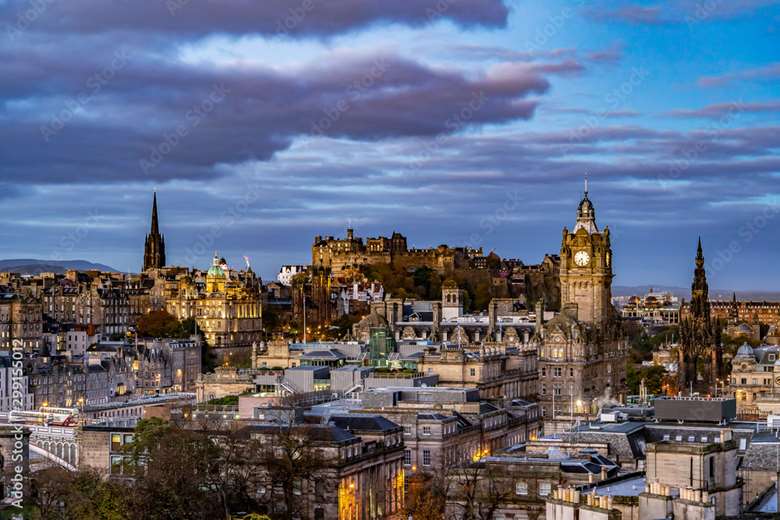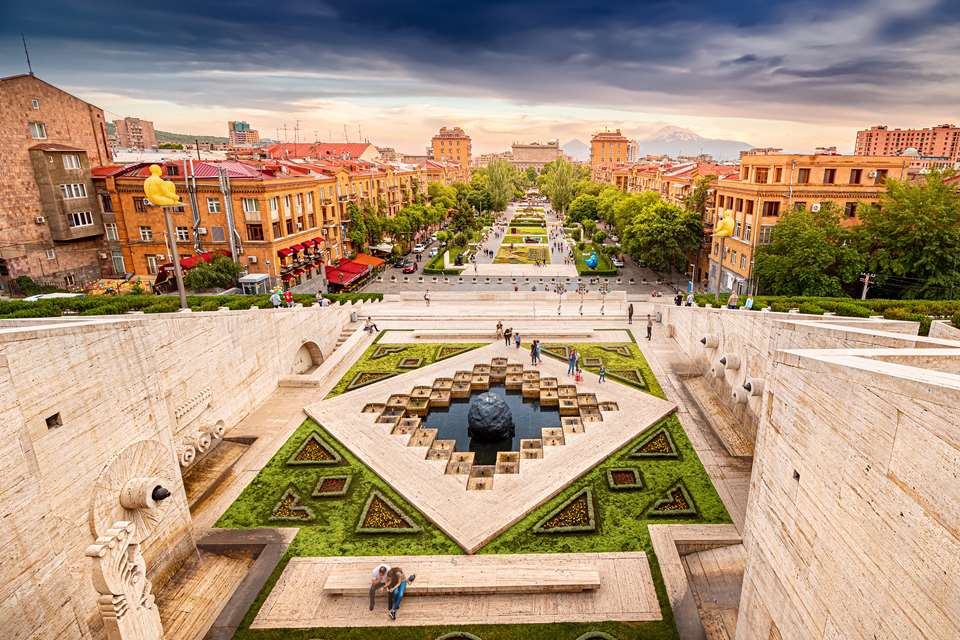European Festival Summit comes to Edinburgh
Florence Lockheart
Friday, May 16, 2025
Simon Mundy reports from the home of the Edinburgh Festival, giving his reflection on the European Festivals Association's most recent gathering

Over 200 delegates from festivals, city administrations, performing arts organisation and networks converged on Edinburgh for four days last month (27 – 30 April). It was the first time the European Festivals Association's General Assembly and Summit had been held in Britain this century and, surprisingly, the first time in Edinburgh in the association's 73 years. There would have been more delegates but for some, especially in Eastern Europe, the difficulty and cost of accessing UK visas ruled out participation. Even for EU Schengen visitors the new electronic entry permission was seen as an unwelcome and unnecessary obstacle, given the high cost of the Scottish capital's hotels. Yet again the UK welcomed with one hand and dismissed with the other.
Once in Edinburgh, though, the city authorities, the Edinburgh International Festival (EIF) and Festivals Edinburgh (the umbrella organisation for all the festivals that take place there throughout the year) made sure the delegates understood why the old town works so brilliantly as a cultural venue. The main sessions were mostly in The Hub, the converted church that sits at the top of the Lawnmarket – just below the castle – and acts as the EIF headquarters. The meetings spread out too, with a morning in the Festival Theatre and the Music Festivals' workshop held in the Scottish Whisky Experience (the cupboards of whisky samples remained firmly locked, much to the chagrin of the assembled directors). Further receptions and dinners in the City Chambers and the National Gallery of Scotland, together with a quiz night in Malone's Bar at Haymarket, meant that the hospitality never ran dry.
"Classical music is always being declared dead but if you work with the musicians and don't treat it as a museum you get a very enthusiastic response from the audience"
At the opening ceremony and in her keynote address the next morning EIF director Nicola Benedetti set out the importance of the festival, not just artistically but philosophically at a time when the world is seeing 'the disintegration of policy and integrity'. She went on to say that in Edinburgh, integrity 'is in the air of every performance, a continuous reminder of what it is to serve our civic and moral duty' and, referring both to the first festival in 1947 and by inference to today's world, to offer 'unequivocally an answer to the division that had torn Europe apart'. In her second speech she underlined the point: 'What we present is not for everyone. We are opening doors in the hope that they will want to step through'. She went on to say that she aimed to 'educate the level of debate' and show the 'enlightened humanism that we would like to define Scotland'.
These were themes on the political role of the arts that also came to the fore in a workshop on artistic freedom and polarisation, held in the morning sunshine of the upstairs bar of the Festival Theatre. There was almost universal agreement among participants that artistic freedom should be almost absolute and that, with very few restrictions, the arts had the right be controversial and to offend against dogmatic opinions, especially those advanced by organs of the state. Workshop leader, Kirsten Xanthippe, viola da gamba player and politics researcher from Southampton University, pointed to Beaumarchais' original Marriage of Figaro plays as historical examples of the arts fighting back against government orthodoxy.
"We are opening doors in the hope that they will want to step through"
The European Festivals Association (EFA) is open to all varieties of arts festivals these days, many of them multi-genre, like EIF and the Fringe, but it started as a classical music network and those festivals are still its core. The music festivals own workshop afternoon showed interesting divergences of approach – from those firmly rooted in traditional concert-giving to those with a more eclectic ethos, using outdoor venues and amplification and selling day tickets rather than entry to single events. There were those that embraced social trends, others that resisted them determinedly (there does seem to be a geographical divide in this, with Italian and eastern European festivals being more traditional than those in the north-west). However, there was, among all, a consensus that if you fit your format and space to your target audience, then the festival will succeed. As Joost Fonteyne, from the Belgium’s Klara Festival put it: 'Classical music is always being declared dead but if you work with the musicians and don't treat it as a museum you get a very enthusiastic response from the audience'.
Apart from membership of the EFA itself, UK festivals can take part in at least three ways. There is membership of the British Arts Festivals Association, which is a collective member of EFA and acts as its hub here; there is participation in EFFEA, the European Fund for Emerging artists, which joins up festivals in small groups to share artists and build joint programmes; and there is the EFFE Seal, which commits local authorities to promote themselves as 'festival cities and regions'.
Perhaps the one sadness of the summit was that so few British festivals attended. It was not necessary to be a member of EFA to do so (the only limitation was not being part of the association's general assembly on the final day) and the signal about post-Brexit isolationism sent by the scarcity of British participants was depressing. Scotland was, of course, well represented, but festivals in in England, Wales and Northern Ireland missed an opportunity to find collaborators in other countries and to make contact with fellow programmers in places they might not have regarded as obvious. The issues facing British musicians touring Europe were raised, debated and deplored but there was too little willingness from festival professionals on much of these islands to engage as part of a wider community.



